Rubbish bags piled up by the pavements and littered across streets.
Tents erected in clusters where people have camped down for the night.
Dozens of directionless residents congregating by the roadside and wandering into the road.
This is what Christmas Day looked like for thousands of homeless people in the dark and dingy underbelly of Downtown Los Angeles this year.
The shocking footage – captured using a car dash camera – shows the brutal reality of life on the street for some 20,000 people in the notorious Skid Row district.
Shot on 5th Street, 6th Street and San Pedro Street, it is a stark glimpse into the day-to-day existence of some of the country’s poorest citizens – including women and children.
This area of LA’s central business zone is considered to be one of the most dangerous places to live in the city.
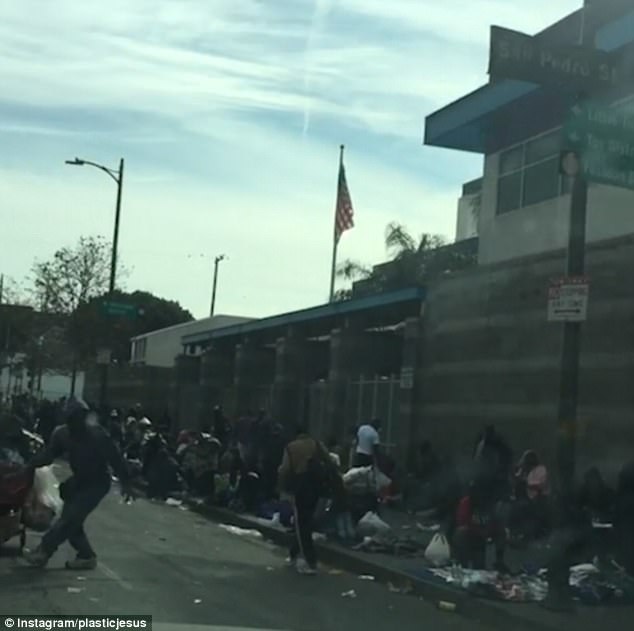
This is what Christmas Day looked like this year for thousands of homeless people in dark and dingy Skid Row – the underbelly of Downtown Los Angeles
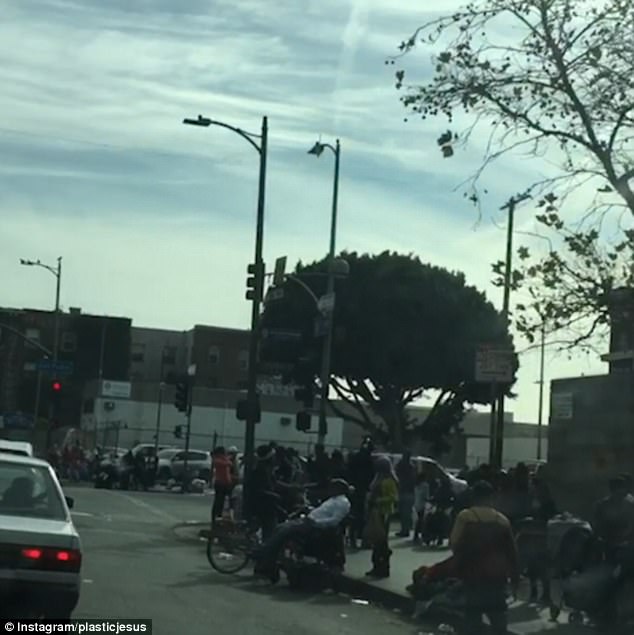
Dash camera footage captures the brutal reality of life on the street for some 20,000 people in the notorious Skid Row district of LA’s central business zone
In Skid Row – one of the notorious homeless hotspots in the area – nine toilets are shared by some 2,000 people, according to a June report titled ‘No Place to Go’.
A lucky few will find food and somewhere warm to sleep in shelters and rescue missions.
But many are left to navigate the industrial sprawl and smoke alone.
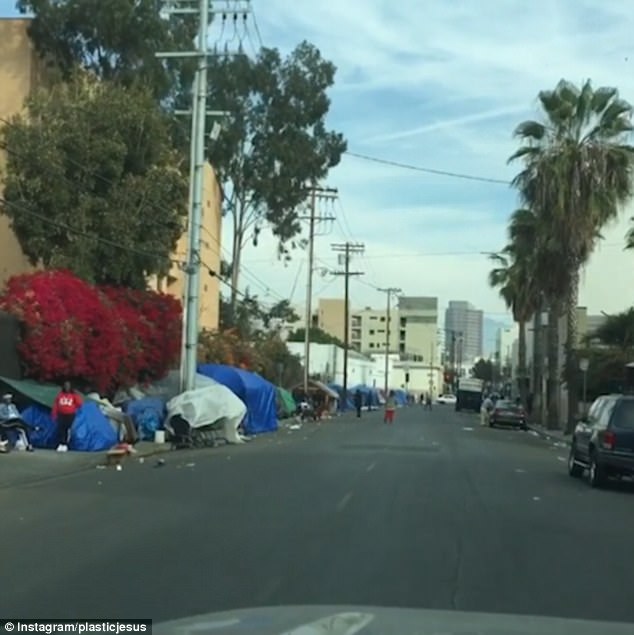
The video shows rubbish bags piled up by the pavements and littered across streets, and tents erected in clusters where people have camped down for the night
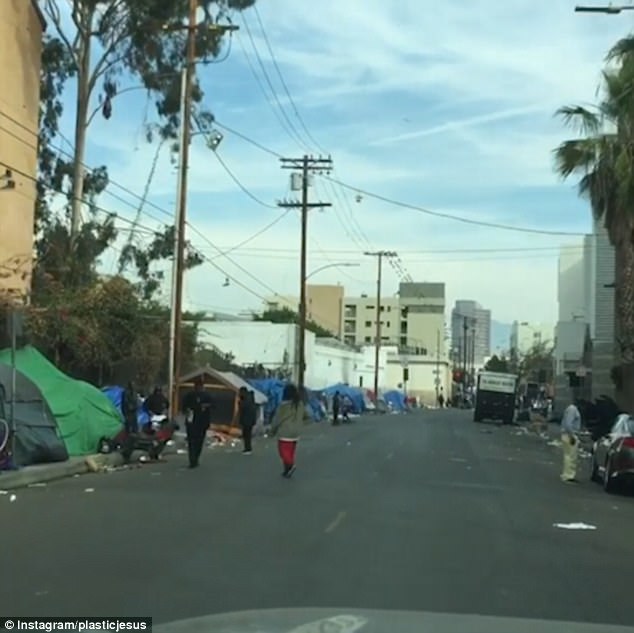
Dozens of directionless residents can be seen congregating by the roadside and wandering into the road in the three-minute clip published on LiveLeak
The three-minute clip was originally published on Instagram by LA street artist Plastic Jesus then on LiveLeak by Nick Stern in the ‘Citizen Journalism’ video category.
It had only been live for 10 hours when it was viewed nearly 40,000 times.
In one frame of the viral footage, a man can be seen pushing a wheelchair in the middle of the road.
Another wheelchair-bound man reclines listlessly on a street corner while women file their thin-looking children through the crowds.
Makeshift canopies – often simply sheets erected on poles – are packed in tightly beside one another in endless rows.
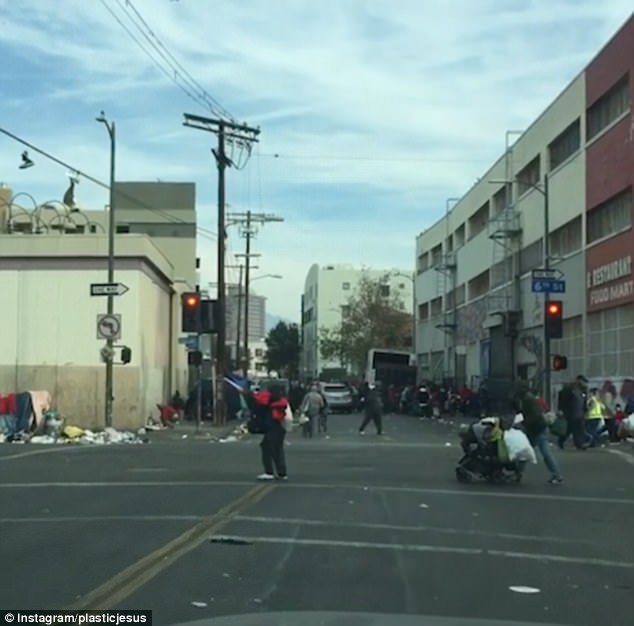
A notorious homeless hotspot, nine toilets are shared by some 2,000 people in Skid Row, according to a June report titled ‘No Place to Go’
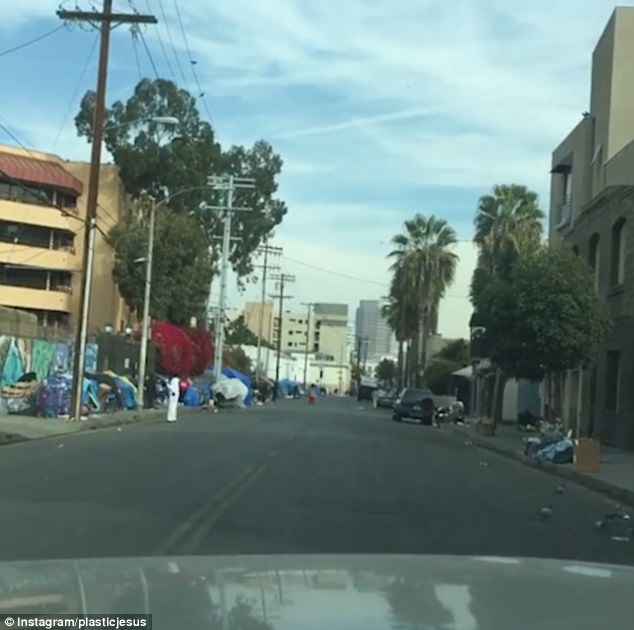
Though ranked as one of the wealthiest nations, the US is home to some of the poorest communities in the world
The rising cost of rent and housing in California is also forcing middle-class residents into alternative accommodation.
Workers end up living in their cars by the roadside and hundreds of people – including nurses and chefs – sleep in parking lots in affluent areas like Santa Barbara.
For example, nursing assistant Marva Ericson has been sleeping in her Kia for the past three months.
She showers at her local YMCA then gets dressed in her hospital scrubs for work.
The problem is so widespread that a Safe Parking Program was introduced in the area 12 years ago.
It allows clients to stay overnight in the parking lots of churches, not-for-profits, and government offices.
In Santa Barbara alone, there are 23 parking lots currently used for the program.
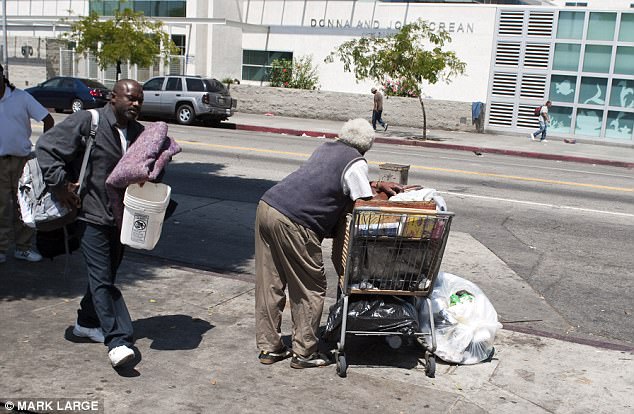
A homeless man stands forlornly by the roadside in the Skid Row district of Los Angeles with his possessions stuffed into a trolley and shabby white bin bag
Though ranked as one of the wealthiest nations, the US is home to some of the poorest communities in the world.
The wealthiest one percent of American households own 40 percent of the country’s wealth, according to a November report by economist Edward N. Wolff.
That same one percent of households own more wealth than the bottom 90 percent combined, the Washington Post reported.
If you know someone who might like this, please click “Share!”
